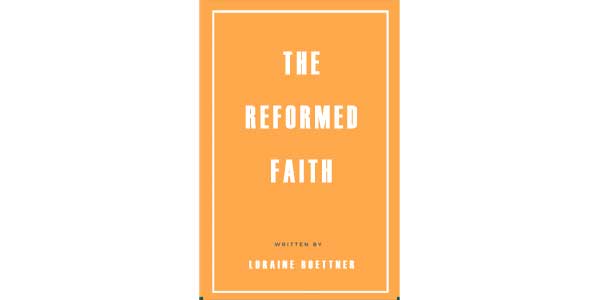 by Loraine Boettner
by Loraine Boettner
In ePub, .mobi and .pdf formats
The purpose of this article is to set forth, in plain language and in terms easily understood, the basic differences between the Calvinistic and the Arminian system to theology, and to show what the Bible teaches concerning these subjects. The harmony that exists between the various doctrines of the Christian faith is such that error in regard to any one of them produces more or less distortion in all of the others.
There are in reality only two types of religious thought. There is the religion of faith, and there is the religion of works. We believe that what has been known in Church History as Calvinism is the purest and most consistent embodiment of the religion of faith, while that which has been known as Arminianism has been diluted to a dangerous degree by the religion of works and that it is therefore an inconsistent and unstable form of Christianity. In other words, we believe that Christianity comes to its fullest and purest expression in Reformed Faith.
In the early part of the fifth century these two types of religious thought came into direct conflict in a remarkably clear contrast as embodied in two fifth-century theologians, Augustine and Pelagius. Augustine pointed men to God as the source of all true spiritual wisdom and strength, while Pelagius threw men back on themselves and said that they were able in their own strength to do all that God commanded, otherwise God would not command it. We believe that Arminianism represents a compromise between these two systems, but that while in its more evangelical form, as in early Wesleyanism, it approaches the religion of faith, it nevertheless does contain serious elements of error.
We are living in a day in which practically all of the historic churches are being attacked from within by unbelief. Many of them have already succumbed. And almost invariably the line of descent has been from Calvinism to Arminianism, from Arminianism to Liberalism, and then to Unitarianism. And the history of Liberalism and Unitarianism shows that they deteriorate into a social gospel that is too weak to sustain itself. We are convinced that the future of Christianity is bound up with that system of theology historically called "Calvinism.' Where the God centered principles of Calvinism have been abandoned, there has been a strong tendency downward into the depths of man centered naturalism or secularism. Some have declared - rightly, we believe - that there is no consistent stopping place between Calvinism and atheism.
-----
Table of Contents
1. The Sovereignty of God
2. Man's Totally Helpless Condition
3. Christ's Atonement
4. The Foreknowledge of God
5. The Universalistic Passages
6. The Two Systems Contrasted
